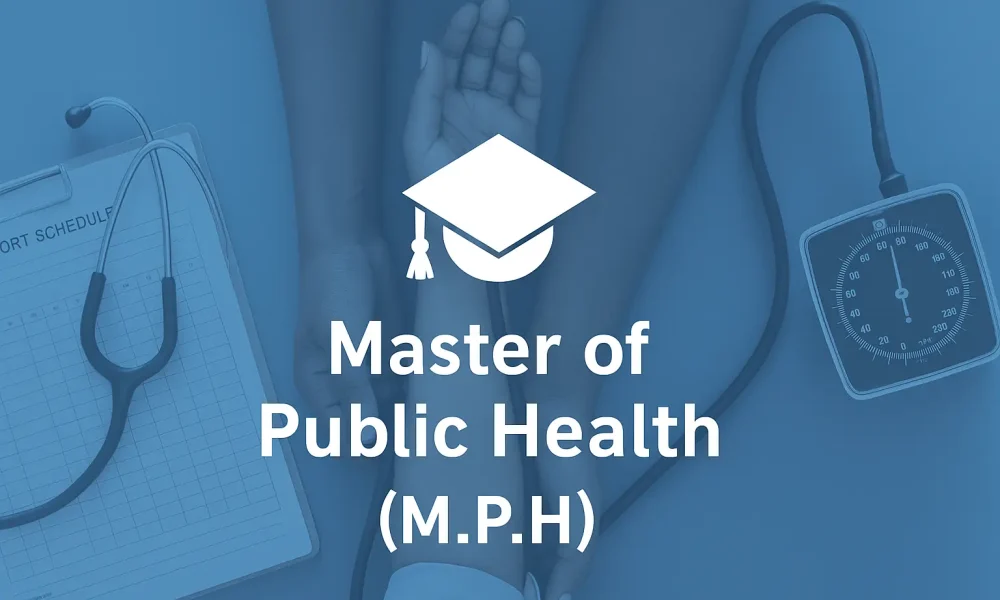The idea of public health has ancient roots, yet the implementation and practice began in the 19th century. Evolving from past historical measures taken to protect public health and prevent the spread of diseases and deaths, the modern-day public health disciplines are inspired by events like the 14th-century plague epidemic. A Master in Public Health course is derived from the primitive ethos of safeguarding a community and developing effective healthcare plans and programmes for the welfare of the public.
Public health practitioners have the responsibility to enhance healthcare conditions and promote healthy lifestyles for longer, better-quality lives. Their work encompasses physical and mental health, hygiene, sanitation, disease prevention, and the organization of public health services in key areas. Public health underscores the importance of community action in preventing and managing diseases while encouraging overall well-being.
Definition Of Public Health & Its Importance In Current Times
The definition of public health simply stands as the science and art of promoting communal health and prevention of issues and illnesses that affect communities. It strives to safeguard the health and well-being of the people, who are part of the community, and effectively reduce human suffering and the chance of public health hazards.
The importance of public health and treatment can be taken from recent world events like the Coronavirus outbreak, when quarantine facilities, mass vaccination drives and social distancing-like measures were adopted worldwide to prevent the virus from spreading at an unprecedented rate. The Master in Public Health programme is dedicated to improving the lives and health conditions of the common people and issuing effective measures at times of public distress.
The Role Of A Public Health Practitioner
Public health is an integral part of the complex healthcare system. And, while the healthcare workers are the front-line responders actively helping the sick and disabled, the public health practitioners are appointed to issue public statements, organise public healthcare programmes, and monitor public health conditions across different areas.
These programmes help shape a noble vision for public health management and equip the students pursuing the course with the skills through real-life experiences. The primary purpose of a public health practitioner is to improve the quality of life and health prospects of the public, and they can do it by joining one of the various sectors of public health.
As a public health practitioner, one can take on various roles—educator, campaign organizer, programme coordinator, or health communicator—working alongside government or private health institutions. These professionals hold the power to drive meaningful changes in the healthcare system and positively impact society. Public health practitioners are entrusted with monitoring, inspecting, and ensuring that public health issues are addressed thoroughly and effectively by government, non-governmental, and private organizations.
What Is A Master’s In Public Health (MPH) Degree?
The Master’s in Public Health is an educational programme that issues a certified degree for starting a career in the healthcare industry as a public health practitioner. While the role of a public health practitioner may vary depending on the job sector they are in, the public health master’s course gives them the knowledge, insight and skills required to tackle the responsibilities under professional circumstances.
Universities like Jindal School of Public Health & Human Development have a strict policy for graduation degree holders to apply for the one-year residential master’s programme. The course curriculum provides a foundation for public health principles and related topics like public health nutrition, health system, management of health, health policies and so on.
How JGU Produces Skillful Public Health Practitioners?
A Master’s in Public Health from the Jindal School of Public Health & Human Development holds significant value in the professional sector. This is due to its well-structured curriculum, comprehensive approach to the study of public health, real-time discussions on pressing issues, and opportunities to gain hands-on experience through workshops and internships led by industry experts.
JSPH has a strong track record of producing graduates who have secured promising employment opportunities both in India and globally. Alumni have successfully entered diverse sectors such as public health consultancies, healthcare innovation, research, public policy, career services, and health access initiatives.





